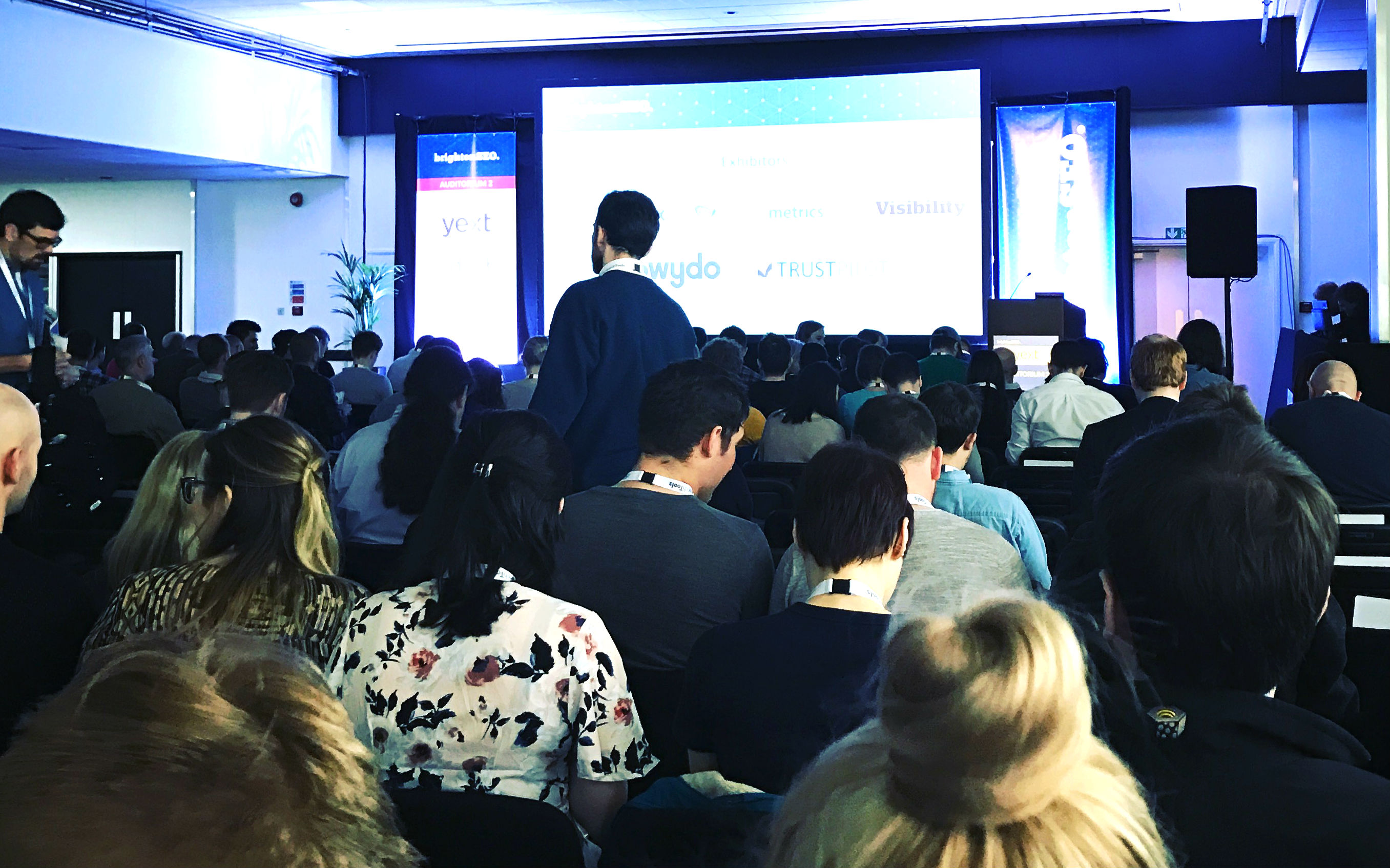3 min read
Honchō Scoops Up Two UK Search Awards!
It’s official, we've added not one, but two shiny trophies to our awards cabinet! We’re over the moon to share that we’ve triumphed at the UK Search...
For us, one of the most exciting conferences in the year is BrightonSEO, a leading search marketing event. Luckily for us, it happens twice a year, with the next event planned for September 2017.
On Friday, we were lucky enough to take a number of our iThinkMedia team down to the event, to sit in on an array of key talks covering SEO, PPC and content topics from a range of industry speakers from both client side and agencies.
We wanted to share our experiences and learning’s with you, to group together the leading trends and topics that any business should be aware of as we move further into 2017.
With Google updating its algorithm on average 1.64 times per day, you can see how fast search marketing is evolving! Okay, so we can never keep up with Google at that rate, but we can adapt how we work to some of the noticeable changes and as digital marketers this is a must, in order to keep our brands competitive in the digital landscape.

SEO in the past used to be so easy to get your brand to page one. Now, the landscape as a whole is finding this more difficult, with many suggesting that Google is playing much more focus on brand factors overall.
As businesses, we can become so wrapped up in the day-to-day, but actually as few as one third of businesses have a holistic view, aligning what their customers want with the business objectives. In a world where we can churn out content, it is really now about making that content high quality to stand out and resonate with your audience.
The local scene in SEO is constantly evolving and Greg Gifford’s talk looked at the latest updates to local ranking and how to get the edge over the competition. The latest Google update for local was Possum, which rolled out in September 2016. We can now see important changes in the local search algorithm:
Did you know that every 500 milliseconds delay on your website translates to a 1% loss in revenue? This is according to a study by Google and Bing. Chrome is known for being the fastest browser due to it predicting what the user will click on and preloading before it’s been clicked. We can start doing this in other browsers too:
Mark Edmonson has created a detailed slideshow here if you’re interested in implementing this.
There’s no doubt that the gaming industry is of the most competitive in the app arena. So what tricks can you borrow from this industry to really get the most traction with your app?
Below are some hot tips from gaming app guru Robin Fry:
If you are interested in our SEO Services then please get in contact today!
Check out our takeaways from BrightonSEO 2016.

3 min read
It’s official, we've added not one, but two shiny trophies to our awards cabinet! We’re over the moon to share that we’ve triumphed at the UK Search...

5 min read
Understand ecommerce attribution models which attribution models can maximise your marketing efforts and ROI.

3 min read
Explore how social commerce is changing the way we shop online, blending social interactions with digital commerce for a seamless buying experience.